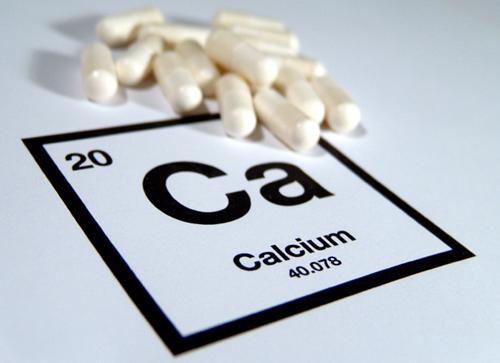You are here
Calcium supplements could increase risk of heart disease
By The Baltimore Sun (TNS) - Oct 15,2016 - Last updated at Oct 15,2016

Photo courtesy of nutraingredients-usa.com
BALTIMORE — Calcium supplements that many women take to boost bone health increase their risk for heart disease, a new study by researchers at Johns Hopkins Medicine and other institutions has found.
The results show calcium supplements make people more prone to plaque buildup in arteries, which contributes to the risk of a heart attack.
The study, published Tuesday in the Journal of the American Heart Association, is the latest salvo in a nearly decade-long debate about whether the supplements do more harm than good.
The researchers said their findings give patients reason to use caution when taking the supplements. It is better for people to get calcium from food such as dairy products, leafy green vegetables, and fortified cereal and juices, they said.
When calcium plaque builds up in the arteries, it inhibits blood flow, increasing heart attack risk.
About 43 per cent of men and women take a supplement that includes calcium, according to the National Institutes of Health.
“We think the body metabolises supplements and dietary calcium differently,” said Dr Erin Michos, the associate director of preventive cardiology and associate professor of medicine at the Ciccarone Centre for the Prevention of Heart Disease at the Johns Hopkins University School of Medicine. “If you are worried about your bones, then get your calcium through food.”
Michos said the study adds to growing evidence that calcium supplements are bad for the heart. But the Council for Responsible Nutrition, which represents manufacturers of dietary supplements, said just as many studies show the opposite.
The group pointed to evidence in the study that people who get a high dose of calcium from a mix of foods and dietary supplements had the lowest risk of calcification in the coronary artery.
“This confirms the safety of calcium supplementation for heart health, which has been the conclusion of several large studies in recent years,” said Duffy MacKay, the council’s senior vice president of scientific and regulatory affairs. “Consumers should have confidence in the safety of calcium supplements, and women in particular should be aiming to get the targeted daily amount of calcium through a combination of diet and supplementation.”
The study was prompted in large part because the scientists wanted to build on previous research by others that found calcium supplements never actually make it to a patient’s bones and instead accumulate in soft tissue and muscles, such as the heart.
The researchers, who worked with scientists from several other universities, looked at data from the Multi-Ethnic Study of Atherosclerosis. The study, funded by the National Heart, Lung and Blood Institute, collected medical information from more than 6,000 patients over time to look at the risk factors and characteristics of cardiovascular disease.
Michos and the team of researchers focused on 2,742 participants who completed dietary questionnaires and had CT scans taken at the beginning of the study and 10 years later.
They found that people who used supplements showed a 22 per cent increased likelihood of developing heart disease over the decade. This was after taking into account demographic factors such as exercise habits, smoking, weight, blood sugar and family medical history.
The research did find that those who consumed the highest levels of calcium — from foods and supplements — were 27 per cent less likely to develop heart disease. It reached that conclusion by comparing the 20 per cent of participants with the highest calcium intake, from diet and supplements, to the 20 per cent with the lowest calcium intake.
Michos called the study limited because it was observational and looked at patient data. A larger, more extensive clinical trial needs to be done, she said.
Dr Michael Miller, professor of cardiovascular medicine, epidemiology and public health at the University of Maryland School of Medicine, said that the study provides further evidence that most supplements in general are not the best way to fight disease. Supplements are not regulated by the Food and Drug Administration like other drugs.
“We have known this for years from vitamin A, vitamin C and other supplements,” said Miller, who writes about supplements in his book “Heal Your Heart”. “They just don’t work. But if you eat the foods that contain these vitamins, the body will absorb them better.”
Michos said she realises past studies have been mixed, but said there were weaknesses in some of the research that showed no link between calcium supplements and heart disease. She believes that many patients are taking calcium supplements without consulting their doctor and that there are better medications on the market even for women with weak bones, she said.
“I think that a lot of women are taking calcium supplements because they think it is good for their body,” Michos said. “People think that because you get things over the counter they are automatically safe. I think we need to get the message out to our patients that they need to take caution with the supplements they take into their bodies.”
Related Articles
Omega-3 fatty acids in fish and dietary supplements are associated with lower odds of heart disease even in people already at elevated risk
Asthma attacks serious enough to require steroid treatment or hospitalization may be less likely when people take vitamin D supplement
Parents and caregivers should be aware of the three ways children can get the vitamin D they need, according to a new resource published in


















